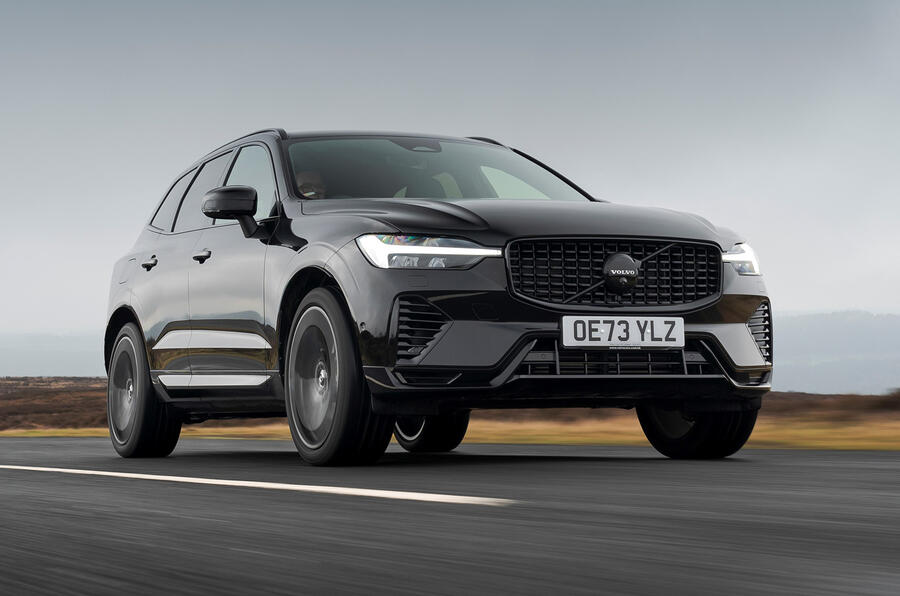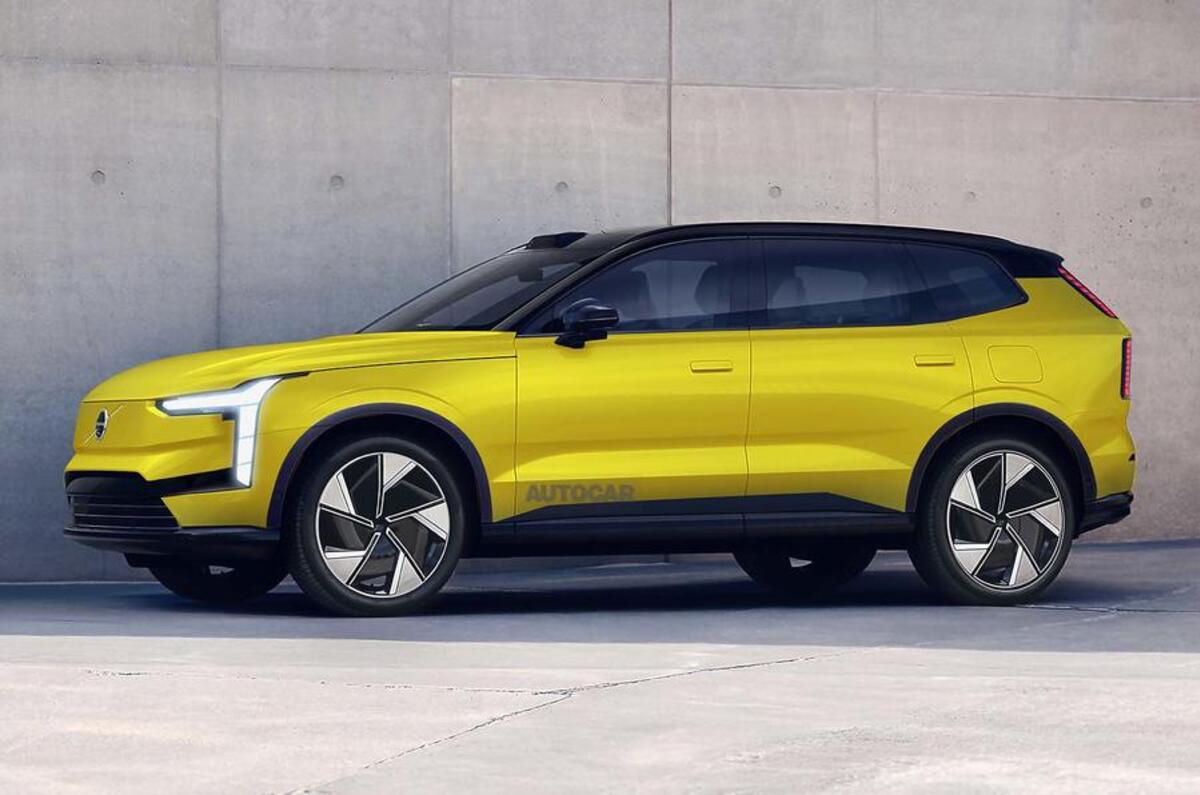The first prototype of the new Volvo EX60 – the firm's first model to sit on an advanced new highly scalable platform – will begin on-road testing this year ahead of is production launch in 2026.
The new model will be a key model for Volvo’s electric switch as the EV equivalent of the hugely popular XC60 family SUV, which has long been its best-seller.
The EX60 will be the first model to sit on the SPA3 platform, which is effectively a successor to the platform used for the EX90 large SUV and forthcoming ES90 saloon but scalable to allow for cars both smaller and larger than Volvo's current line-up.
As with those models, the EX60 will be designed around an advanced software stack, giving it the ability to accept over-the-air updates and other extras.
Volvo confirmed the first EX60 test vehicle would be built and driven this year during its latest financial results presentation.
Bosses had previously described the model as a "huge boost" in Volvo's electriciation journey, given that it would serve as the electric sister model to its best-seller.
Tech chief Anders Bell described the SPA3 platform as being "100% electric and 100% Volvo Cars", rather than a shared Geely group platform, such as the SEA platform used for the EX30 crossover.
"Because it's 100% electric, we've been able to remove all the old constraints of the combustion engine," said Bell. "We very much took a first-principles approach to it. You will see the highest level of supremely well-integrated technology coming together in these products."
The EX60 is likely to broadly match the dimensions of the XC60 (pictured below) and will doubtless take styling cues from the EX30 and EX90.

Bell said the SPA3 is “a big step from a mechanical perspective, but from a software electronics perspective, it's a straight evolution”.









Join the debate
Add your comment
Volvo must stop futzing around with half baked models like they've done with the EX90. The EX90 is not up to snuff for its price. The software is borderline disastrous, the real world range is mediocre at best, and the charging times are not competitive with upcoming new 800V models from BMW, Mercedes-Benz, or VWAG's recently launched SSP platform models. There's also some issues with how the accelerator and regenerative braking are calibrated. It's bizarre because Geely has the resources to do this right, but Polestar and Volvo are seemingly given the scraps off the table instead of the main course. They don't have a single 800V model, meanwhile sister brands Zeekr and Lotus do. Volvo and Polestar also don't get the super fast charging speeds, Tesla-baiting performance, or top notch driver assistance technology. It's quite an odd decision by Geely to push better products from their less recognizable brands than the flagship Volvo brand. I hope Volvo will knock it out of the park with the new EX60. It must be much better to drive than their current XC60 and show the rest of the automotive industry Volvo truly can once and for all compete toe to toe with German luxury brands. I would love to see them offer a 10-90% charge in under 20 mins, and real world range in excess of 350 miles highway.
If it's 95% as good and maxs out at 10% more than a Model Y then Tesla are in serious trouble come 2026.
Volvo aren't a tech company so they shouldn't be trying to be one. Good usability is massively important in safely operating a vehicle. As an ergonomist I find it so baffling that car companies have ignored basic human factors/usability principles to save a few quid on each vehicle. Basic heating/ventilation controls need separate rotary controls that do need the driver to take their eyes off the road to operate. Volvo can't claim to be safety focused if they insist on such heavy reliance on touchscreen controls. It's dangerous.